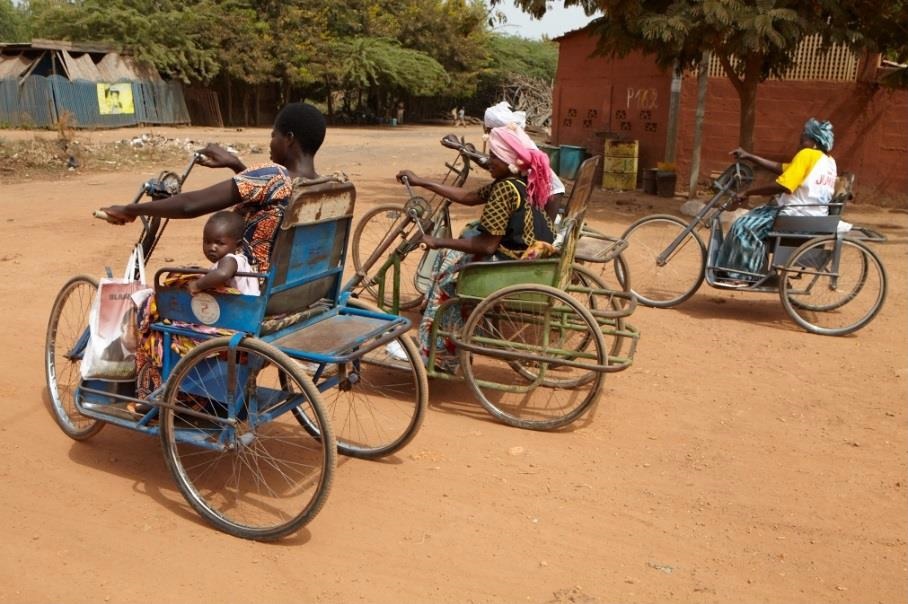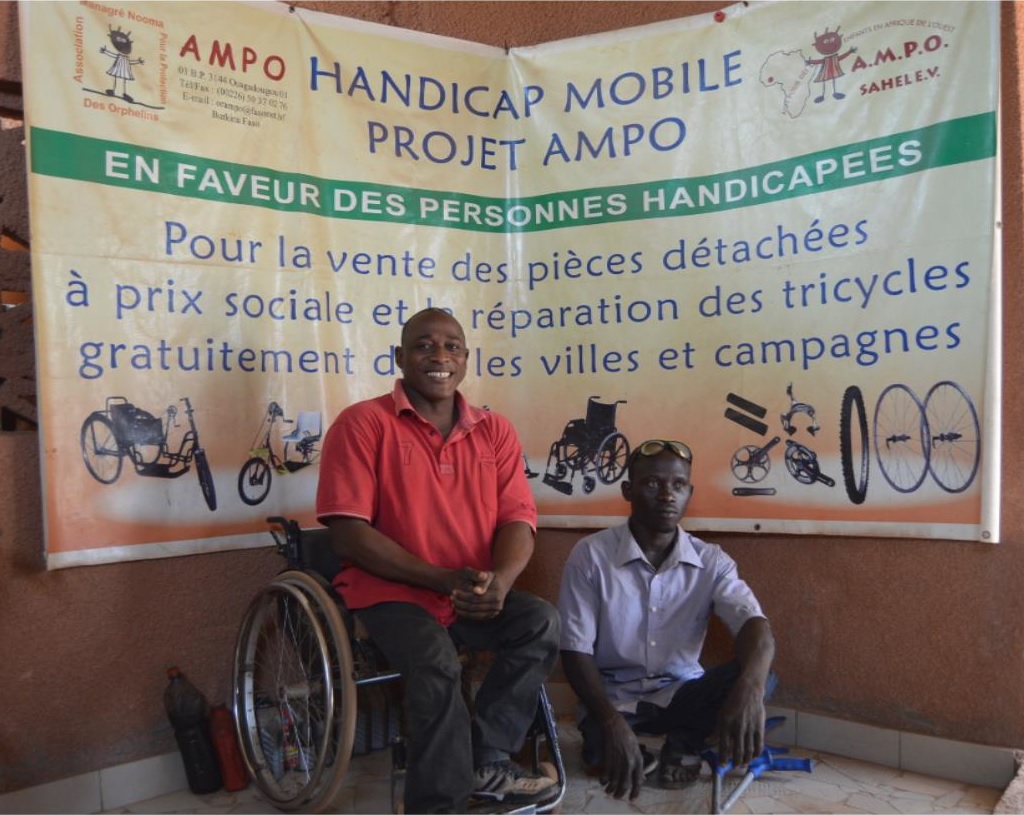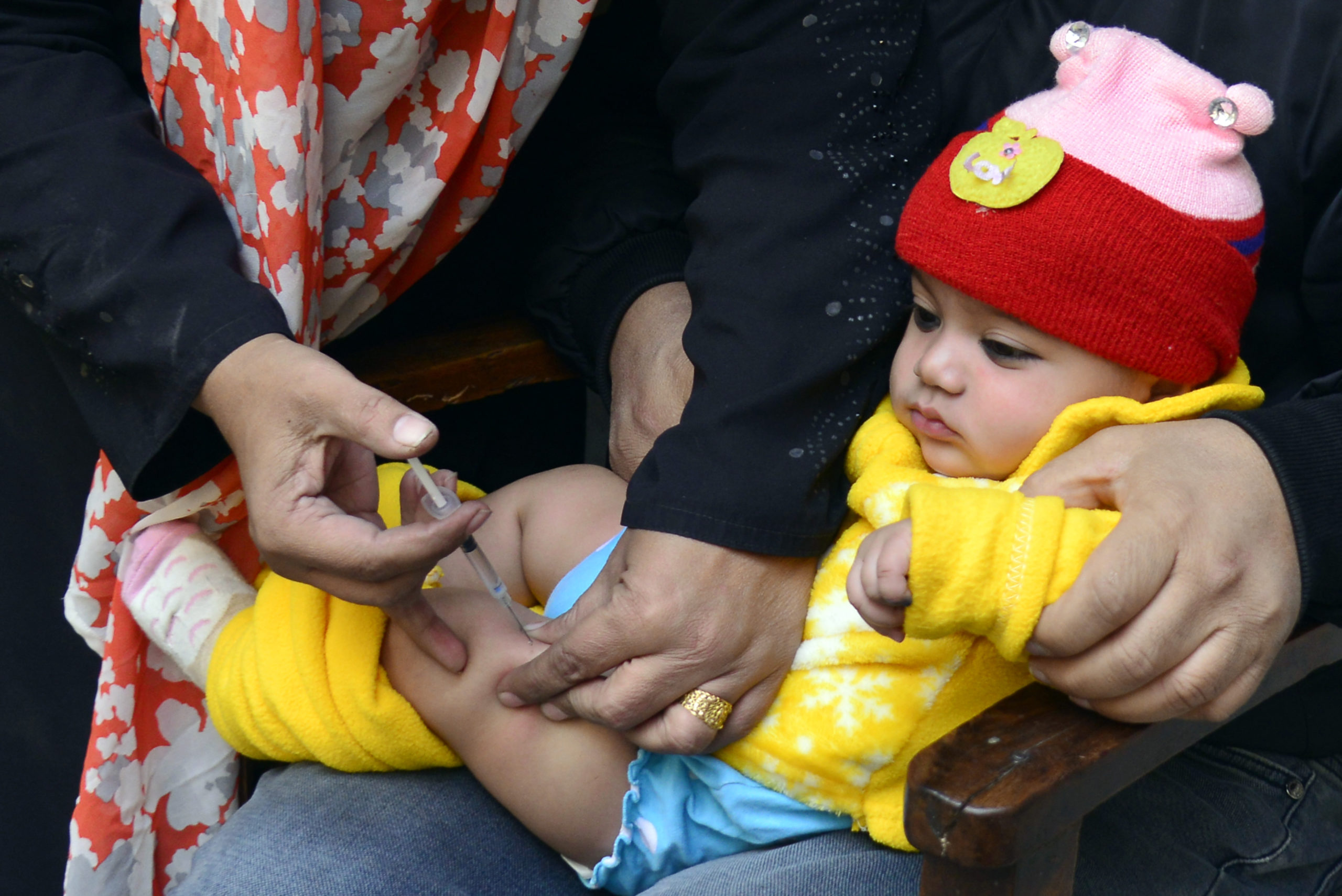
Outside a sandy coloured building in a village in Burkina Faso, a young girl on crutches is making her way out onto the street. In front of her home is a new wheelchair – child-sized, brightly painted and specially adapted to the unpaved streets of her neighbourhood.
Countries around the world are united in their efforts to eradicate polio so that it will never again cause a child to be paralysed. This is important because there is no cure to this paralysing disease. For polio survivors in Burkina Faso, the opportunity to be independently mobile in their own communities can be life changing.
Independence after disability
For children living in poor communities whose limbs are paralyzed by polio, there is often very little support available to make them independently mobile. Giving a child a wheelchair puts previously inaccessible opportunities within reach so that children can reach their potential; such as going to school, playing outside with friends and learning new skills. In many cases the children are free to explore the world around them for the first time without a friend or family member to help.
Rotary International, along with partners such as Sahel, are providing support to the AMPO Association in Ouagadougou to provide services and facilities for children, teenagers, young mothers and people with disabilities often caused by polio.
Custom-made wheelchairs
The tricycles are hand-crank operated by the individual to navigate the difficult roads of Burkina Faso. A wider version is also available for adults riding with children and the chairs can be personalized in a variety of colours.
For many of those coming to the workshop, it is the first time they have had a custom-built mobility aid. They enter the workshop with assistance, but leave under their own steam.
The success of the project is largely due to the determined efforts of Project Director Edouard Norgho. He is a wheelchair user himself and so he fully appreciates the needs of his clients. Ouagadougou has more than two million inhabitants with no public transport systems, so Edouard makes sure that each wheelchair he makes is robust enough to cover long distances every day.
The five wheelchair makers at AMPO are all people with disabilities. Trained on the job, the workshop offers employment to people who often face discrimination on the labour market.
Spreading their expertise beyond the city, staff from the workshop travel further afield to reach up to 1600 people in rural areas. With the support of Rotary Germany the project receives funds and wheelchair parts, helping more and more polio survivors live a mobile life every year.
For the young girl in her new wheelchair, an exciting future awaits. In Burkina Faso more than 70% of children with disabilities have no access to education. Now, able to navigate to school by herself, she can become part of the 30% who do have the opportunity to learn. With the support of Rotary and other partners, AMPO is well on the way to helping more people like her, the target being to provide increased mobility to every polio survivor in Ouagadougou.
To find out more about this project, or provide financial support (US$250 will pay for a wheelchair for a child with disability), please visit sahel.org or contact info@sahel.de.




